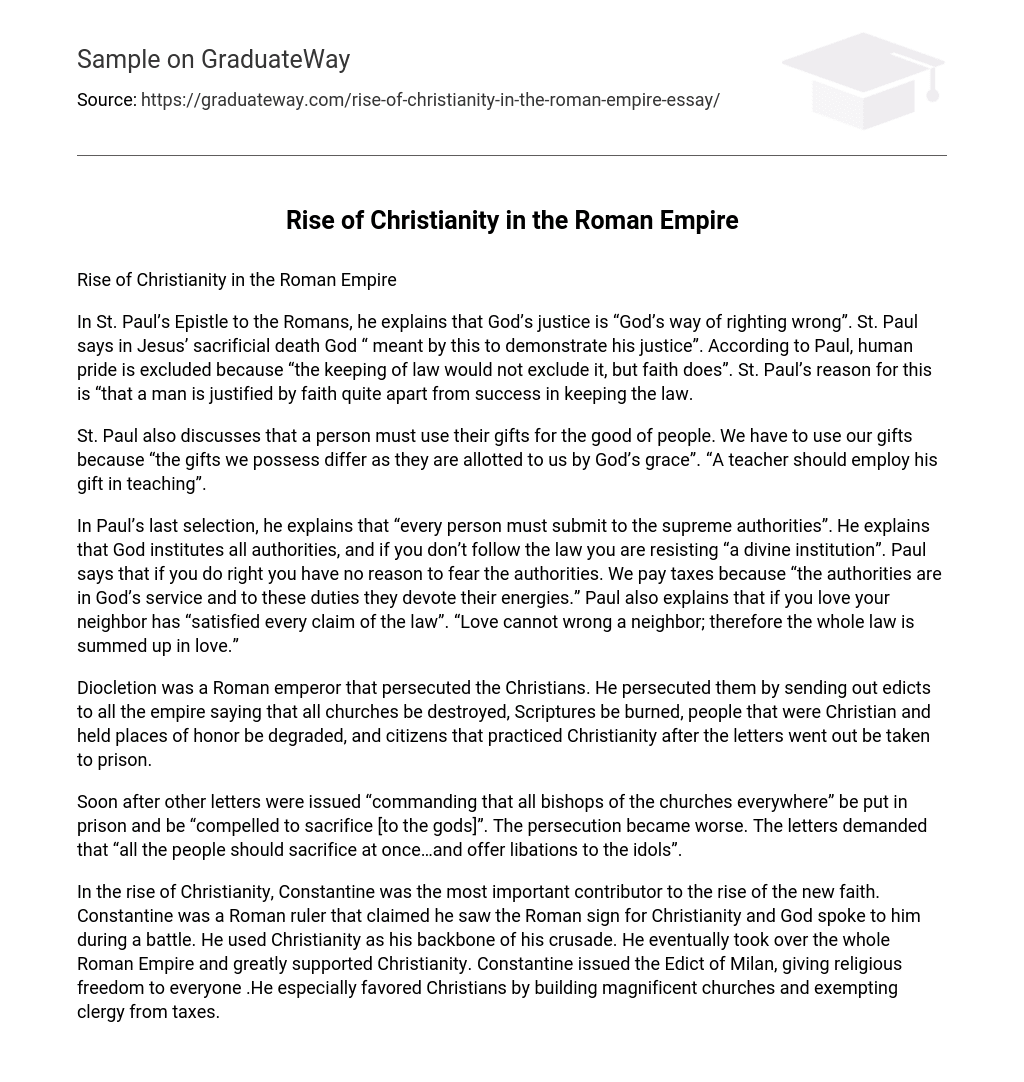Rise of Christianity in the Roman Empire
In St. Paul’s Epistle to the Romans, he explains that God’s justice is the way God rights wrong. St. Paul states that through Jesus’ sacrificial death, God intended to illustrate his justice. According to Paul, human pride is not included because keeping the law does not exclude it; faith does. St. Paul’s rationale for this is that a person is justified by faith, completely separate from their success in following the law.
Paul emphasizes the importance of submitting to the supreme authorities, stating that every person must do so. He acknowledges that all authorities are instituted by God and by resisting them, one is going against a divine institution. Paul assures that if one does what is right, there is no reason to fear the authorities. He explains that as the authorities are serving God, we pay taxes to support their duties. Additionally, Paul states that loving one’s neighbor fulfills all requirements of the law. He affirms that love does not harm others, thereby summarizing the entire law in the concept of love.
Diocletion, a Roman emperor, actively targeted and oppressed the Christian community. His tactics involved issuing decrees throughout the empire, demanding the destruction of churches, burning of Scriptures, degradation of Christian individuals in positions of authority, and imprisonment of citizens who continued to practice Christianity after the dissemination of these orders.
Following the issuance of additional letters, it was ordered that all bishops of all churches everywhere should be imprisoned and coerced into making sacrifices to the gods. The persecution escalated even more as the letters explicitly required all individuals to immediately partake in sacrifices and make offerings to the idols.
In the rise of Christianity, Constantine played a crucial role. As a Roman ruler, he declared to have witnessed the Roman sign for Christianity and received a divine message from God during a battle. Constantine utilized Christianity as the foundation of his crusade and eventually conquered the entire Roman Empire, actively supporting the faith. Among his notable contributions, Constantine introduced the Edict of Milan, which granted religious freedom to all individuals. Moreover, he displayed notable favoritism towards Christians by constructing splendid churches and exempting clergy from taxation.





